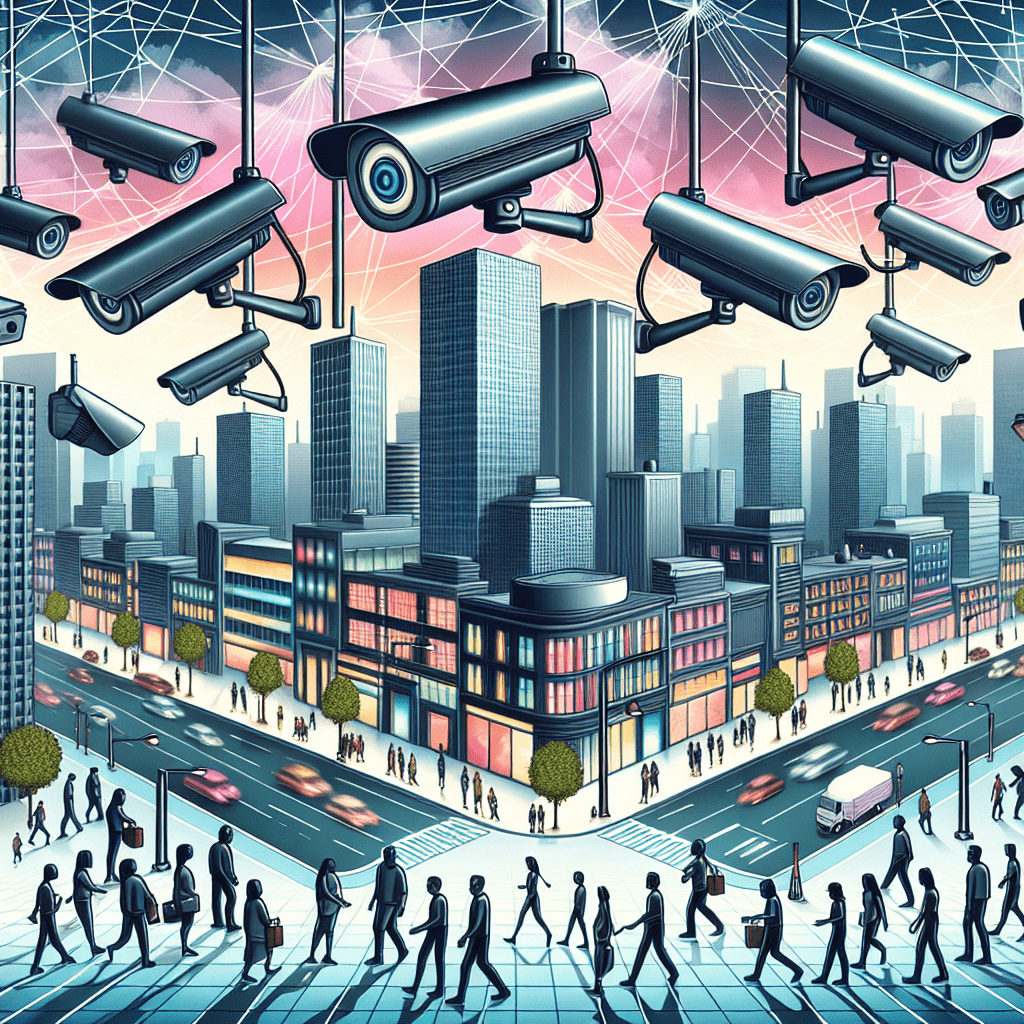In today’s world, surveillance cameras have become a ubiquitous part of our daily lives. From shopping malls to highways, airports to offices, these cameras are constantly monitoring our every move. While the intention behind installing surveillance cameras is to enhance security and safety, the question remains: are they really keeping us safe, or are they infringing on our right to privacy?
Surveillance cameras have been on the rise in recent years due to advancements in technology and the increasing need for security measures. They have proven to be effective in deterring crime, aiding in criminal investigations, and monitoring public spaces. However, their omnipresence has raised concerns about privacy violations, government surveillance, and data breaches.
The Benefits of Surveillance Cameras
Surveillance cameras serve as a deterrent to criminal activity by creating a sense of accountability among individuals. Studies have shown that the presence of cameras can reduce theft, vandalism, and other illicit behavior in public spaces. In addition, surveillance footage can provide valuable evidence in legal proceedings and help law enforcement agencies solve crimes more efficiently.
Surveillance cameras are also used to monitor traffic flow, manage crowds in public events, and ensure the safety of public transportation systems. They help businesses prevent inventory shrinkage, monitor employee productivity, and maintain a secure work environment. In emergency situations, surveillance cameras can be instrumental in providing real-time information to first responders and facilitating rescue operations.
The Pitfalls of Surveillance Cameras
Despite their benefits, surveillance cameras raise significant ethical and privacy concerns. The widespread use of surveillance technology has led to the normalization of constant monitoring and the erosion of personal privacy. The collection and storage of vast amounts of data from surveillance cameras raise questions about data security, access control, and the potential misuse of personal information.
In addition, the use of facial recognition technology in surveillance cameras has sparked debates about the infringement of civil liberties and individual rights. The accuracy and reliability of facial recognition algorithms have been called into question, with reports of misidentifications and false positives leading to wrongful arrests and discriminatory practices.
Government Surveillance and Civil Liberties
Government agencies around the world use surveillance cameras as a tool for mass surveillance and monitoring of citizens. Critics argue that widespread government surveillance infringes on civil liberties, undermines democratic values, and creates a culture of fear and mistrust. The lack of transparency and accountability in government surveillance programs raises concerns about unchecked power and abuse of authority.
The debate over the balance between national security and individual privacy has intensified in recent years, with calls for stricter regulations on the use of surveillance technology and greater oversight of government surveillance activities. Advocates for privacy rights argue that the unchecked expansion of surveillance capabilities poses a threat to democracy and human rights.
Conclusion
The rise of surveillance cameras has sparked a contentious debate about the trade-off between security and privacy. While surveillance cameras have proven to be effective tools in enhancing public safety and crime prevention, their widespread use has raised serious concerns about privacy violations, government surveillance, and civil liberties. As technology continues to advance, it is crucial for policymakers, businesses, and individuals to strike a balance between security needs and privacy rights.
Frequently Asked Questions (FAQs)
1. Are surveillance cameras effective in preventing crime?
Surveillance cameras have been shown to deter criminal activity and provide valuable evidence in criminal investigations. However, their effectiveness in preventing crime depends on various factors such as camera placement, monitoring capabilities, and public awareness.
2. Can surveillance cameras be hacked?
Surveillance cameras are vulnerable to hacking if proper security measures are not in place. It is essential for businesses and organizations to regularly update their camera systems, use strong passwords, and implement encryption protocols to prevent unauthorized access to camera feeds.
3. What are the privacy implications of facial recognition technology in surveillance cameras?
The use of facial recognition technology in surveillance cameras raises significant privacy concerns as it enables the tracking and monitoring of individuals in public spaces. Critics argue that facial recognition technology poses a threat to personal privacy, civil liberties, and human rights.
TIP: Protecting Your Privacy in the Age of Surveillance
As surveillance cameras become more prevalent in our society, it is essential to take proactive steps to protect your privacy and data security. Avoid sharing sensitive information in public spaces, be mindful of your online presence, and use encryption tools to safeguard your communications. By staying informed and vigilant, you can navigate the complexities of the digital age while preserving your privacy rights.
#Rise #Surveillance #Cameras #Keeping #Safe #Invading #Privacy
